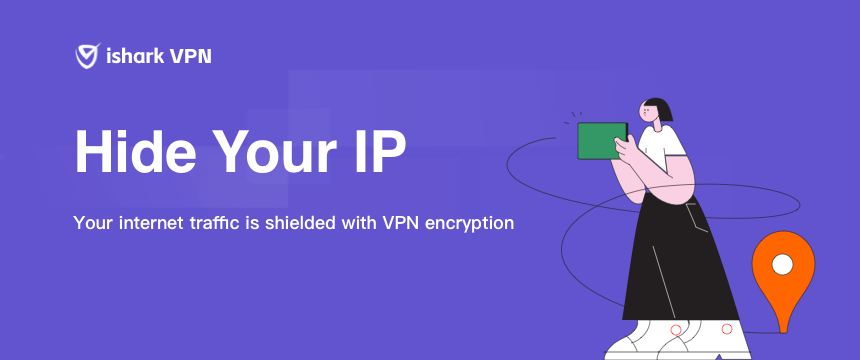The Application of VPN in Protecting Mobile Device Security and Privacy
ishark blog article
With the widespread use of mobile devices and the rapid development of mobile internet, people are increasingly relying on smartphones and tablets for communication, work, and entertainment.
However, along with these advancements come security and privacy threats to mobile devices. To safeguard personal data and privacy, more and more users are turning to Virtual Private Networks (VPN) to protect their mobile devices from network attacks and infringements.
This article explores the application and impact of VPN in protecting mobile device security, public Wi-Fi usage, and privacy.

VPN Protecting Mobile Device Security:
Data Encryption: VPN encrypt data traffic on mobile devices using powerful encryption technologies, preventing hackers and eavesdroppers from accessing sensitive information.
Preventing Network Attacks: VPN provide secure tunnel connections, preventing hackers from carrying out man-in-the-middle attacks, data tampering, and stealing user information via public Wi-Fi networks.
Malicious Website and App Filtering: Some VPN service providers offer features to filter out malicious websites and apps, helping users protect the security of their mobile devices.
VPN Protecting Public Wi-Fi Usage:
Encrypting Public Wi-Fi Connections: When using public Wi-Fi networks, VPN encrypt users' data transmissions, preventing hackers and eavesdroppers from accessing their personal information.
Preventing Wi-Fi Snooping: VPN create a secure communication channel that prevents hackers from snooping on users' data transmissions and sensitive information via Wi-Fi. Isolation from Public Wi-Fi Networks: By connecting to VPN servers, users' devices are placed in a private network, isolated from the public Wi-Fi network, thereby enhancing security and privacy.
VPN Protecting Mobile Device Privacy:
Anonymous IP Address: Using VPN allows mobile devices to hide their real IP addresses, increasing user anonymity and preventing tracking and monitoring.
Privacy-Protected Browsing: VPN provide encrypted tunnel connections that block Internet Service Providers (ISPs) and other third parties from tracking users' online activities and browsing histories.
App Privacy Protection: Some VPN services offer app-level privacy protection, preventing applications from collecting users' personal information and location data.
Practical Application Effects of VPN in Mobile Device Security and Privacy:
Data Security: By encrypting users' data transmissions, VPN protect personal privacy and sensitive information, preventing hackers and third parties from gaining access.
Wi-Fi Security: By encrypting public Wi-Fi connections, VPN prevent hackers from stealing user data, providing a more secure online experience.
Anonymity and Privacy Protection: By hiding real IP addresses and preventing tracking, VPN increase user anonymity and privacy, reducing the risk of personal information leakage.

Conclusion:
VPN play a crucial role in mobile device security and privacy protection. Through functionalities such as data encryption, preventing network attacks, protecting public Wi-Fi usage, and maintaining personal privacy, VPN help users protect the security and privacy of their mobile devices.
However, users should choose trustworthy VPN service providers and understand the limitations and security risks of VPN to ensure the effective protection of their mobile devices' security and privacy.









